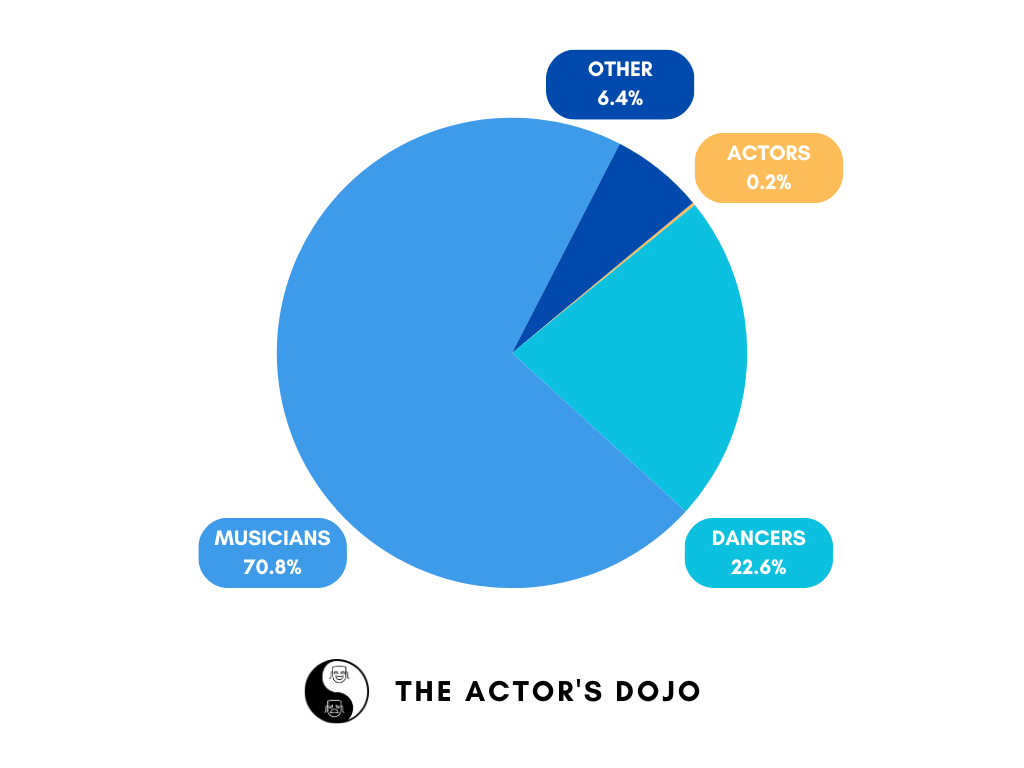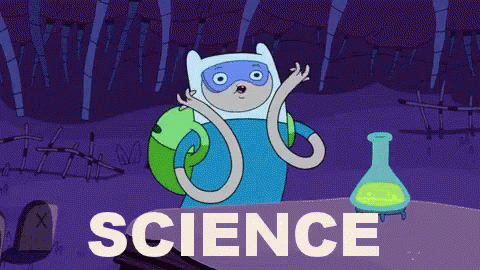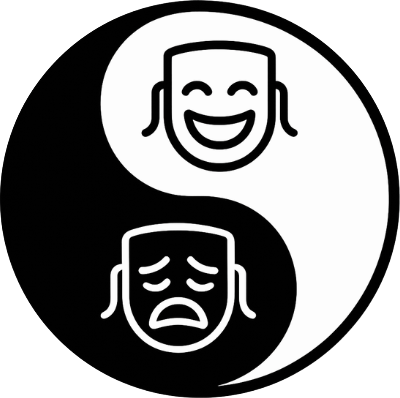What Acting Stands to Gain From Science
"Be regular and orderly in your life so that you may be violent and original in your work." ~ Gustave Flaubert
In two separate conversations last week, the Dojo was referred to as the "actor / acting people" (context here). That was our intro. Twice.
While we're choosing to take this as a compliment (we do love us some witty wordplay), this message is more than mere semantics. The chasm between our industry's comprehensive acting training and non-existent actor training is an issue (more here).
Of the primary performing arts, acting is the only one yet to adequately address this doer / doing divide. Music, dance, and circus are kindred domains that have grappled with a kindred disparity – a heavy focus on the doing and a light focus on the doer. Importantly, though, all three domains have started bridging this gap. And interestingly, all three have looked to sport psychology to help them do so.
Acting, however, has neither attempted to build a bridge nor co-opted sport psychology for its structure. We're so painfully far behind our kindred creatives that we went out of our way to make a chart to illustrate the point. This chart depicts the distribution of research into the well-being of performing artists over a five-year period.[1]

And no, 0.2% isn't a typo. As has been noted, "In any discussion about performing arts medicine it is generally assumed that the 'arts' under consideration are dance and music".[2]
Backed by science; built for the stage and screen.
👊 Actors:
Get evidence-informed insights and strategies to support your performance and well-being. Join the Dojo e-newsletter tribe and make thriving your reality.
🧭 Drama schools & Production companies:
Bring pioneering, research-backed coaching into your classroom or rehearsal room. Let’s talk about supporting your actors to perform at their peak – and stay well in the process.
Isn't it ironic?
Our field is so loyally wedded to "the way we've always done things" that even theoretical threats to the "magic" of acting (e.g., sport psychology) are met with great resistance.
Ironically, Konstantin Stanislavski – the creator of "the way we do things" – was met with similar resistance when he began developing the acting method still in use today. Stanislavski's business partner, Vladimir Nemirovich-Danchenko, accused him of turning the actor's "essentially mysterious and poetic process" into a "crude, manufactured, artificial surrogate".[3]
And yet, where would our field be if Stanislavski hadn't forged ahead with his innovations regardless? The irony would be amusing if it didn't come to our detriment.
More recently, Professor Emma Redding, MBE, spoke to us about the pushback she received while co-authoring the first-ever Master of Science (Dance Science) degree:
The sceptics would say, "Dance is going to become too safe, too diluted. If we add too much science, we're going to lose the spark and creativity". And I would say, "Look at Formula One. They're going faster than ever; they're not going slower. They're still breaking records, and they're still really exciting. They're pushing boundaries. The difference is that they're not crashing and dying anymore".
Thanks to the perseverance of Professor Redding and co., our friends in the dancing world now have a Dance Science degree. How awesome is that?
The good advice we should take
Much aligned with the Flaubert quote above, Bryan Cranston has said: "Whenever young actors ask me for advice, I always tell them: get your house in order. Your relationships, your health, your personal life: that's your foundation. If your home life is sane, it allows you to go insane in your work".[4]
What we stand to gain from science is sizeable: evidence-based tools and techniques to make peak performance and holistic well-being accessible to the actor population. As sport, music, dance, and circus have all shown us, pairing technical training with psychological training can help both the doer and the doing.
We've clearly said this a lot, but we'll continue until we turn the tide: actor training is just as critical as acting training. Surviving, let alone thriving, as an actor today demands technical skill and psychological skill. The latter is no longer a nice-to-have; it's a must-have.
We aren't here to foster dependency – goodness knows our industry does this enough. Yes, the Dojo exists to do the heavy lifting of translating often dense scientific literature into actor-friendly takeaways, but by all means, forge ahead with your own research and self-experimentation! Study sleep, nutrition, and exercise best practices. Test-drive mindfulness, mental rehearsal, and self-talk modalities. If we can make your life a little easier, awesome. But you don't need us. You only need to know there are evidence-based tools and techniques available.

Science isn't spooky, fellow actor amigos; science is of service. Because until the industry shifts to empower us systemically, we will need to empower ourselves individually. Sport psychology can help us do that.
Love what you’re reading? Help us keep it flowing. Donations support the research, writing, and free sharing of evidence-informed tools for actor performance and well-being. Every dollar fuels our mission to make thriving a reality for actors everywhere 🔥
Citations
[1] https://doi.org/10.21091/mppa.2007.4033
[2] https://www.sciandmed.com/mppa/journalviewer.aspx?issue=1126&article=1283
[3] https://www.scribd.com/document/402105713/Stanislavski-a-Biography-Art-Ebook-pdf
Cite us!
IG: @theactorsdojo
APA 7: Norrish, T. (2024, December 7). What acting stands to gain from science. The Actor’s Dojo. https://www.dojoactors.com/acting-science/
